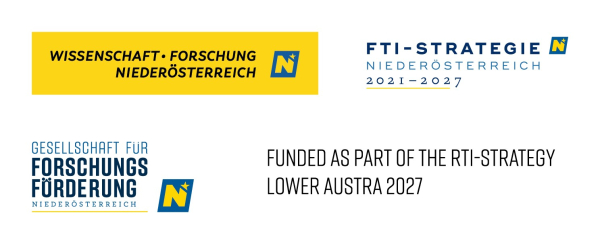The perspective of users on offers of Lower Austrian youth vocational assis-tance in the tensionfield between activation policy and socio-pedagogical support.
Project Content and Aims
Gainful employment continues to be of major importance for social participation, the construction of identity, life plans, and biographies. Young people who have completed a special needs school or a school for special educational needs have a particularly high risk of being excluded from higher (vocational) training. If they do not find an apprenticeship place after leaving school, many of them make use of AusbildungFit trainings or qualification projects. So far, there is very little knowledge in Austria about the situation of young people taking part in these offers – which have changed in 2015 – after graduating from a special needs school or a school for special educational needs. The few studies that have been conducted suggest that these adolescents’ level of integration in further training measures is still low, which means that they have a high likelihood of abandoning their training prematurely.
In my research, I address this gap and examine the concrete life situations of these young people. The objective of the dissertation project at hand is to explore the situation, experiences and individual needs of young people after graduating from a special needs school or a school for special educational needs who participate in qualification projects and AusbildungsFit offers of the Lower Austrian vocational assistance of young people. Moreover, requirements for socio-educational support are outlined.
An in-depth situational analysis and description of the specific needs from the perspective of these institutions’ target group is performed. This provides first findings on the consequences of mandatory training until the age of 18 for the target group under investigation. The insights gained form a knowledge base for the further development of offers. The overarching goal is to improve the social and occupational integration of young people who have completed a special needs school or a school for special educational needs.
Methods
The backbone of the project is a qualitative and participatory research design which combines several methods and whose implementation is oriented towards the principles of the Grounded Theory by Strauss and Corbin (1996). In line with the participatory approach, the adolescents taking part are involved in both the interpretation of data and the arrangement of the research design, the research implementation, and the resulting dissemination processes. In order to do research together with the adolescents and in their life-worlds, the subjective experiences of and challenges faced by young people in institutional contexts of the Lower Austrian vocational assistance of young people are explored together using the Photovoice method (Wang & Burris, 1997) and jointly analysed and evaluated in reflexive group processes based on the coding paradigm of the Grounded Theory. These findings are then further developed by the adolescents in discourse with professionals and experts from the sphere of vocational assistance for young people. Finally, concrete requirements for this field of action are formulated by experts and adolescents together.
References
Strauss, A. L., & Corbin, J. M. (1996). Grounded theory: Grundlagen qualitativer Sozialforschung. Beltz.
Wang, C., & Burris, M. A. (1997). Photovoice: Concept, Methodology, and Use for Participatory Needs Assessment. Health Education & Behavior, 24(3), p. 369–387.
The content does not necessarily represent the view of the state of Lower Austria or the funding agency. Neither the state of Lower Austria nor the funding agency can therefore be held responsible for the content.
You want to know more? Feel free to ask!
Junior Researcher Ilse Arlt Institute for Social Inclusion Research
Department of Social Sciences


